Scoates Hall 1932 A Historic Landmark of Agricultural Engineering Named for Daniels Scoates Designer of this Building Professor and Head Department of Agricultural Engineering 1919 to 1939 Eleventh President of ASAE Teacher, Writer, Engineer Counselor to Youth, His Example Still Inspires. Dedicated by the American Society of Agricultural Engineers 1978
Education
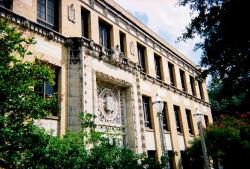
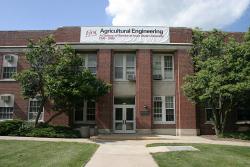
Designated an Historic Landmark in Honor of J. Brownlee Davidson a Founder of Agricultural Engineering First President of American Society of Agricultural Engineers Organizer of the First Professional Agricultural Engineering Curriculum July 1905 by American Society of Agricultural Engineers
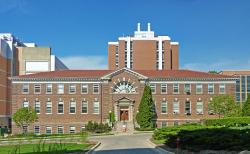
American Society of Agricultural Engineers Founded in this Building December 27, 1907
The Purdue University Airport was the first collegiate owned airport in the United States. It hosted Amelia Earhart for her final adventure, was the training ground for test pilots such a Jimmy Johnson and Ivan Kincheloe, balloonist Malcolm Ross, and astronaut Neil Armstrong. Purdue University Airport and its people and programs pushed aviation’s evolution to new heights and helped expand the frontiers of flight. During WWII, hundreds of U.S. Army and Navy members were trained at the airport.
Prior to its merger with the Carnegie Institute of Technology in 1967 to form Carnegie Mellon University, the nonprofit Mellon Institute for Industrial Research was a major, independent research corporation dedicated to promoting applied research for industry and educating scientific researchers for the benefit of society as a whole. The Institute educated hundreds of fellows for careers in industrial research and helped to sell the very idea of research to manufacturers.
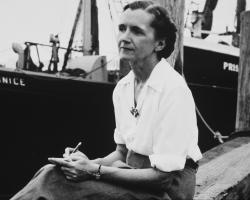
Rachel Carson’s Silent Spring, published in 1962, was a landmark in the development of the modern environmental movement. Carson’s scientific perspective and rigor created a work of substantial depth and credibility that sparked widespread debate within the scientific community and the broader public about the effect of pesticides on the natural world. These discussions led to new policies that protect our air, our water, and, ultimately, our health and safety.

Amos Eaton and Stephen Van Rensselaer founded the Rensselaer School for "the application of science to the common purposes of life" in 1824. Eaton had practiced surveying as a teenager building his own compass and chain and wrote an early book on surveying. Later he studied law before becoming interested in geology and agriculture. Stephen Van Rensselaer was the seventh patroon of Rensselaerwyck a track of land comprising most of the current Rensselaer, Albany and Columbia Counties in the State of New York.
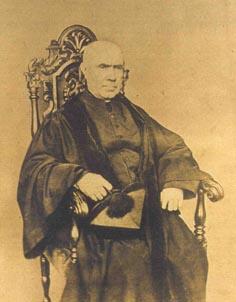

On Right: Tech Tower
Photo circa 1899Era_date_from: 1888
Inventions credited to the Ecole Nationale des Ponts et Chaussees and its graduates include: prestressed concrete, lighting gas, and the optical lens. The school and its graduates also have been central to research in the diffraction of light, the applications of concrete, and the measurement of the strength of materials.
Innovations
Inventions credited to the Ecole Nationale des Ponts et Chaussees and its graduates include: prestressed concrete, lighting gas, and the optical lens. The school and its graduates also have been central to research in the diffraction of light, the applications of concrete, and the…

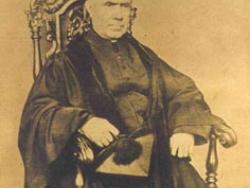
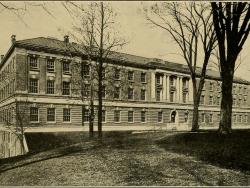
Amos Eaton and Stephen Van Rensselaer founded the Rensselaer School for "the application of science to the common purposes of life" in 1824. Eaton had practiced surveying as a teenager building his own compass and chain and wrote an early book on surveying. Later he studied law before becoming…
Read More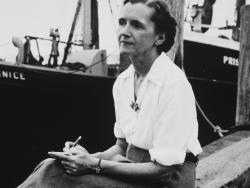
Rachel Carson’s Silent Spring, published in 1962, was a landmark in the development of the modern environmental movement. Carson’s scientific perspective and rigor created a work of substantial depth and credibility that sparked widespread debate within the scientific community and the…
Read MorePrior to its merger with the Carnegie Institute of Technology in 1967 to form Carnegie Mellon University, the nonprofit Mellon Institute for Industrial Research was a major, independent research corporation dedicated to promoting applied research for industry and educating scientific researchers…
Read MoreThe Purdue University Airport was the first collegiate owned airport in the United States. It hosted Amelia Earhart for her final adventure, was the training ground for test pilots such a Jimmy Johnson and Ivan Kincheloe, balloonist Malcolm Ross, and astronaut Neil Armstrong.…
Read More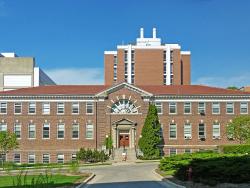
American Society of Agricultural Engineers Founded in this Building December 27, 1907
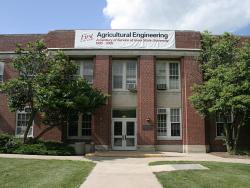
Designated an Historic Landmark in Honor of J. Brownlee Davidson a Founder of Agricultural Engineering First President of American Society of Agricultural Engineers Organizer of the First Professional Agricultural Engineering Curriculum July 1905 by American Society of Agricultural…
Read More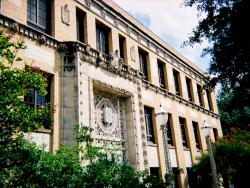
Scoates Hall 1932 A Historic Landmark of Agricultural Engineering Named for Daniels Scoates Designer of this Building Professor and Head Department of Agricultural Engineering 1919 to 1939 Eleventh President of ASAE Teacher, Writer, Engineer Counselor to Youth, His Example Still Inspires.…
Read More

